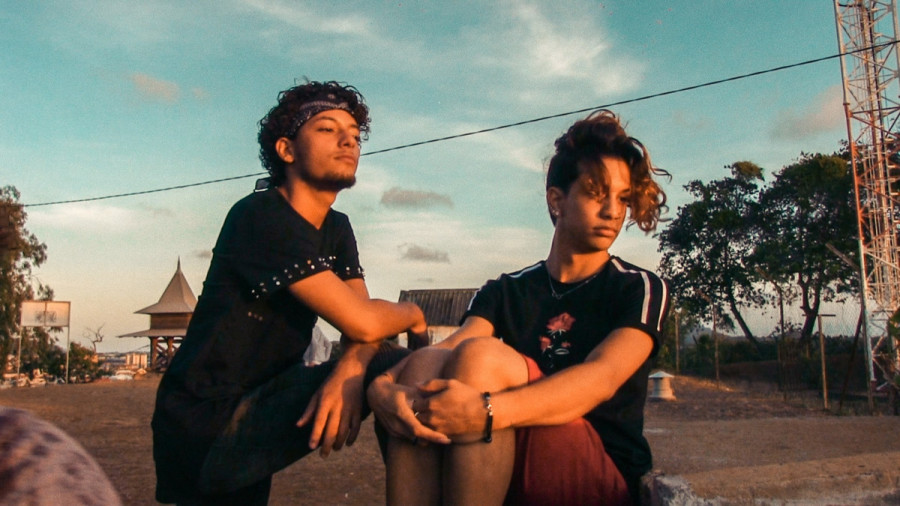The Massimadi Film Festival Premieres ‘Our Dance Of Revolution’
A Passionate Documentary Detailing Toronto’s Black Queer Reality
The film Our Dance of Revolution directed by Phillip Pike had its Quebec premiere on Feb. 24, as part of the Massimadi Festival. The festival was in its twelfth edition, and included a line-up of films that mainly revolve around the Black LGBTQ+ experience.
According to the festival coordinator Laurent Maurice Lafontant, they wanted the festival to happen during Black History Month in order for the Black queer community to be more fully acknowledged in Black culture.
Massimadi’s aim is to promote the culture of Black queer people all over the world. The theme of this year’s festival was “AFROFUTURISK,” relating to Afrofuturism, a literature, music, and art movement that features science fiction themes which incorporate elements of Black history and culture.
Our Dance of Revolution opens with a look at the Black Lives Matter march that happened during 2017 Pride Toronto. It then spans through various moments where Black queer people living in Toronto express their unique experiences about racism and homophobia in Canada.
Even though the film investigates the struggle of being marginalized, it isn’t a cry of pain but rather a celebration of resilience.
Rodney Diverlus is one of the co-founders of Black Lives Matter Toronto and was featured in the film.

“To be Black and queer is to be a danger to the world and I think that that’s beautiful,” he said in the film.”
“We’re so bold, and so strong and so dangerous. The power that Black queer trans people have [is] a disruptive power, a community power, a collective power. That is what is so scary to everyone else.”
The film celebrates the history of Black queer people, and their lives under oppressive tactics from the government—tactics such as the Toronto bathhouse raids in 1981.
Our Dance of Revolution also appreciates Black queer ancestors for all the work they’ve done, and teaches present-day Black queer people about their past, which is often erased and subjugated by white LGBTQ+ history.
RelatedTwo prominent featured speakers in the film are Makeda Silvera, a Caribbean Canadian lesbian writer, and Douglas Stuart, the founding executive director of the Black Coalition for AIDS Prevention and a founding member of Zami (the first Black queer group in Toronto). They both attended the premiere.
“It’s a way of fighting erasure,” said Silvera, talking about the film. “I am proud that we have managed to accumulate all of this footage and film over the course of 50 years.” It was important to her to have a story that is often silenced come to light.
The film is also a call to action. It recounts the history of the Black queer struggle in order to remind present-day Canadians that they need to continue the work of the past.
One of the most prominent stories told in the film is about the founding of the first Black lesbian feminist collective in Toronto.
“To be Black and queer is to be a danger to the world and I think that that’s beautiful.” — Rodney Diverlus
The “Black Women’s Collective (BWC) was formed like a family, and was instrumental in creating a community that began early activism in 80s Toronto. This activism included feminist activism, gay liberation and activism against South African apartheid (among other movements).
The most touching part of the collective is that, even though it was a safe haven for Black queers, it was equally welcoming to people of all cultures and races.
The collective began formally organizing as a group in 1984. They struggled in the women’s movement around issues of race and representation. They fought for their rights not only to defend themselves and their struggle against racist and sexist oppression but to control how that struggle would look.
They fought for a representative movement which would acknowledge the different power relations among women, brought on by white supremacy and discrimination. They also created a Black women’s newspaper called Our Lives which detailed their activism. Black women were at the forefront of Black queer activism.
The film combines both profound historical events with entertaining personal accounts of the Black queer struggle. It’s amusing and soul-stirring, and it deals with a wide-range of experiences—from a Black queer musician in Toronto finding a space for himself in a white-majority downtown club scene, to a HIV-positive man who has spent his life fighting the stigma as much as the disease itself.
For more about Our Dance of Revolution, check out their website.


